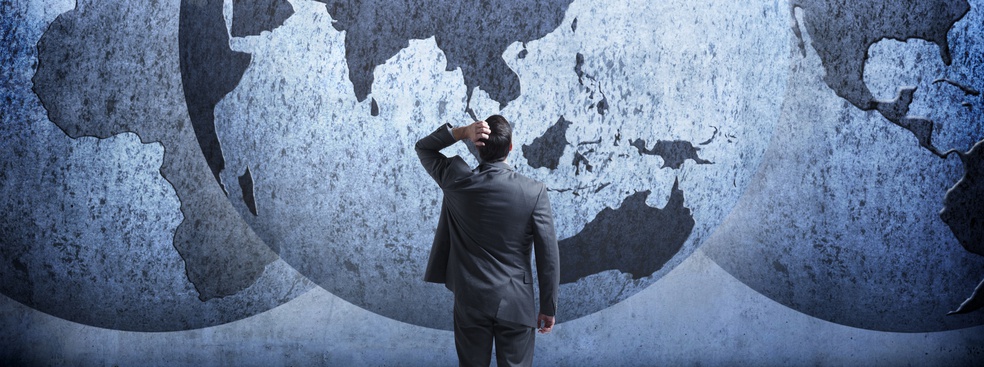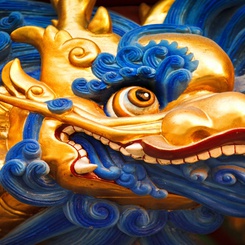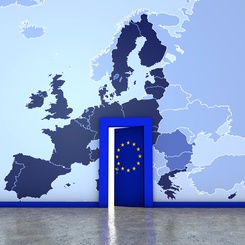The US is still the most important state in the world when all definitions of power are put together (economy, military, foreign engagement, soft power…). Many states can compare to the US on one or several segments, but not on all of them. It is therefore of crucial interest to all countries to know how the American elections unfolded and who is going to be the next President. The US presents itself as the beacon of democracy and defender of human rights worldwide. According to many US allies, that image was seriously damaged by the four years of Donald Trump’s presidency and by the weeks-long contest of the election results. After four years of hyper-presidency centred on an all-powerful Trump, Joe Biden has promised a return to normalcy, to decency, and to a traditional way of doing politics in America. This will not be easy because Biden’s inauguration is in January 2021. Donald Trump has ample time to capitalize on his 74 million voters to instil a doubt about the fairness of the election. If millions of Americans continue to shout: ‘Stolen election!’ or ‘Not my President!’ for the four years to come, Biden will have problems in restoring the image of America’s democracy at home and abroad.
All eyes are on the foreign policy and speculations abound. What foreign countries wait to see is America’s engagement in economic globalization and diplomatic and military actions. As far as globalization is concerned, it is understood that Biden will bring America back on the multilateral track that Trump vowed to destroy. Multilateral organizations like the World Trade Organization, the World Health Organization or NATO, accords and treaties like the Paris Climate Agreement or the United Nations Human Rights Council can expect that the US will assume its role to the fullest (payment, engagement, respect) and will abandon the disengagement initiated by Donald Trump. The US comeback to multilateralism is of utmost importance to small countries that do not have the firepower of the US to make their voice heard and count. As nature abhors a vacuum, the place of the US in the international concert of nations has been filled in by other countries such as Russia, Turkey and Iran in the Middle East or China in Asia-Pacific.
The most important region from the economic point of view is Asia. ASEAN countries just signed a milestone free-trade agreement with China, Japan, South Korea, Australia and New Zealand. The Regional Comprehensive Economic Partnership (RCEP) has created the biggest free-trade area in the world, with more than 2 billion people and 30% of the global GDP. And the United States is not part of it. Since Donald Trump pulled out of the rival Trans-Pacific Partnership (TPP) favoured by Barack Obama, other countries (China above all), decided to finalize the RCEP. In recent years, China has become the most important trading partner for all Asian countries, and this is not going to fade away. China’s pivot to Asia-Pacific happened because of the COVID-19 pandemic, which pushed China to reorient its strategy and investments inwards and in the neighbourhood. Even if the United States wants to challenge China in Asia-Pacific on the economic side, this will not be easy since China has already built a certain number of entry barriers there. On the other side, American companies did not massively disinvest from China and the region as Trump wanted them to do so. The US still has enough capital in the region that it can leverage on in competing with China. The door is still open if the US really wants to restore its position.
Asia is also important from the diplomatic and military point of view. All countries will scrutinize the nominations of the Secretary of State, the top diplomats, and positions in the Pentagon and the intelligence community in order to decipher and predict an American policy that will certainly be different from the previous one. Going back to Obama’s doctrine and preferences is a natural temptation, considering that Joe Biden served two terms as his Vice-President. However, the situation has changed over the last four years and Trump’s legacy is there. Trump did not initiate any new war, his pas de deux with Kim Jong-un defused some tensions, and the establishment of diplomatic relationships between Israel and some Gulf states is something the new administration will hesitate to destroy. Biden’s resolve on human rights and defence of traditional allies like Japan and South Korea will be put to a test in a series of Asian Pacific challenges gravitating around China’s assertiveness. China is much stronger than four years ago, and it successfully managed the COVID-19 crisis, a crisis that is still the major concern in the United States. Any American involvement in Hong-Kong, Taiwan, Xinjiang or South China Sea will be met with strong resolve from the Chinese side.
Biden will have to play on two fronts at the same time. He needs to reassure China that the US does not want to enter a New Cold or Hot War with China, that he wants to treat China as a partner and not as a rival and at the same time Biden needs to give assurance to its traditional allies that he will not abandon them and that the US still stands as a defender of human rights and democracy, a role Donald Trump neglected in the past four years. Asian countries are aware about the importance of the two giants: they know that whatever the relationship between them, it will have an impact on them. As the former PM Lee Kuan Yew from Singapore used to paraphrase an African proverb: ‘When two elephants fight, the grass suffers. When they make love, the grass suffers too’. The interest of everyone, China and the United States included, involves a balance of powers where other countries are not forced to choose between the two giants. This is easier said than done, because of the hawks on both sides eager to deploy their wings. Both military-industrial complexes closely watch the first moves of the Biden’s presidency and will not miss the opportunity to invite themselves to the table.









